An MIT researcher and a Unitec ākonga took out the two awards in the inaugural MIT & Unitec three-minute thesis competition.
The Three Minutes to Impact Competition was held at Unitec’s Te Noho Kotahitanga Marae on Wednesday 22 October.
MIT and Unitec kaimahi and ākonga entrants in two categories had three minutes to articulate their research in front of an audience including a panel of judges.
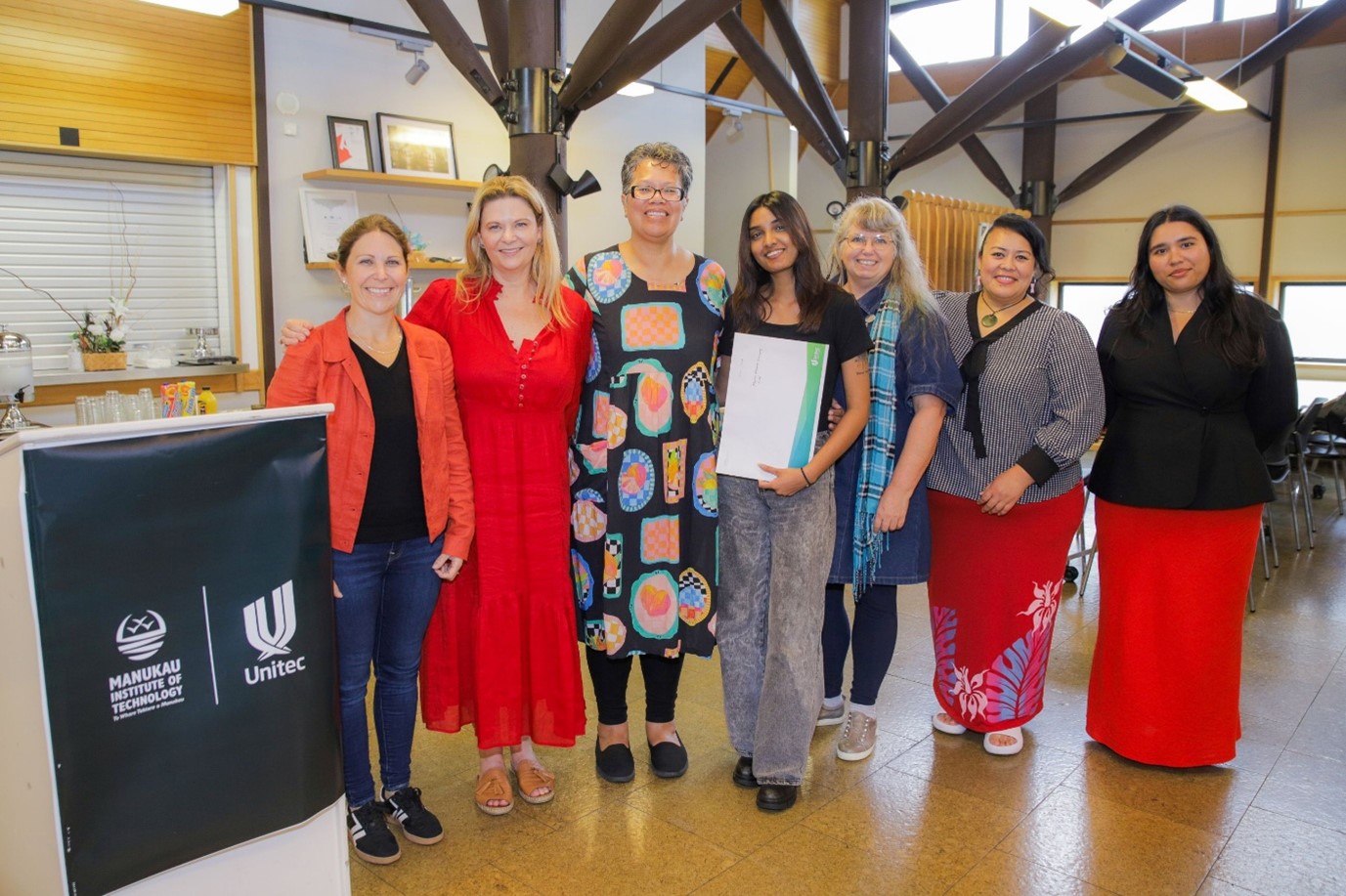
(From left) Runner-up Kristie Cameron (Unitec), Dr Rosanne Ellis, Winner Maureen Fepuleai (MIT), Winner Maria Gomes, Runner-up Tracey Deane (Unitec), Runner-up Genevieve Sang-Yum (Unitec), Runner-up Hunter Henson (Unitec)
Maureen Fepuleai, MIT lecturer in the School of Health and Counselling, won the ‘Emerging and Early Career Researchers category for her three-minute pitch entitled: Navigating Ala: Empowering Tama’ita’i Samoa through Shared Stories.
The topic, which is the basis for her doctoral research, centres on how Samoan women live with Ala or Acquired Loss of Ability. The term Ala is preferred by Tama’ita’i Samoa (Samoan women) instead of pejorative moniker ‘disabled’.
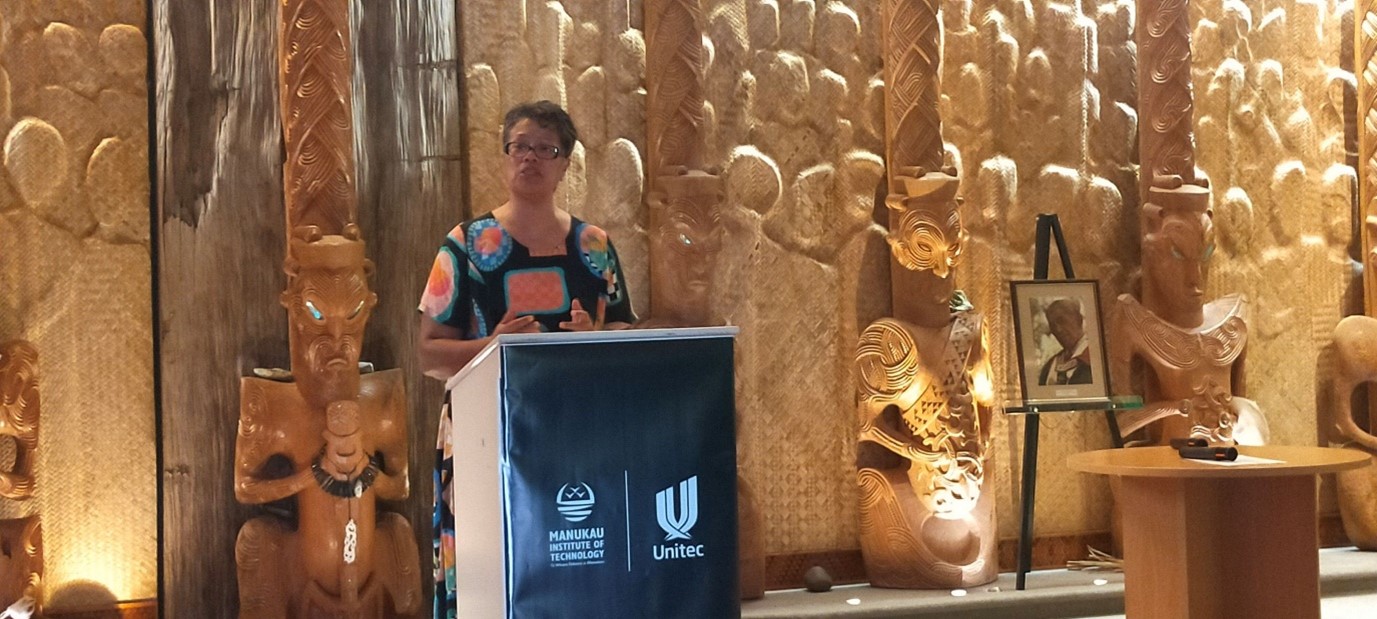
Ms Fepuleai won one of the two main awards
“It feels surreal and humbling to have won the award. It hasn’t sunk in for me yet. I feel very privileged to have competed alongside amazing peers who also spoke well about their own research topics. Looking forward to the 2026 event.”
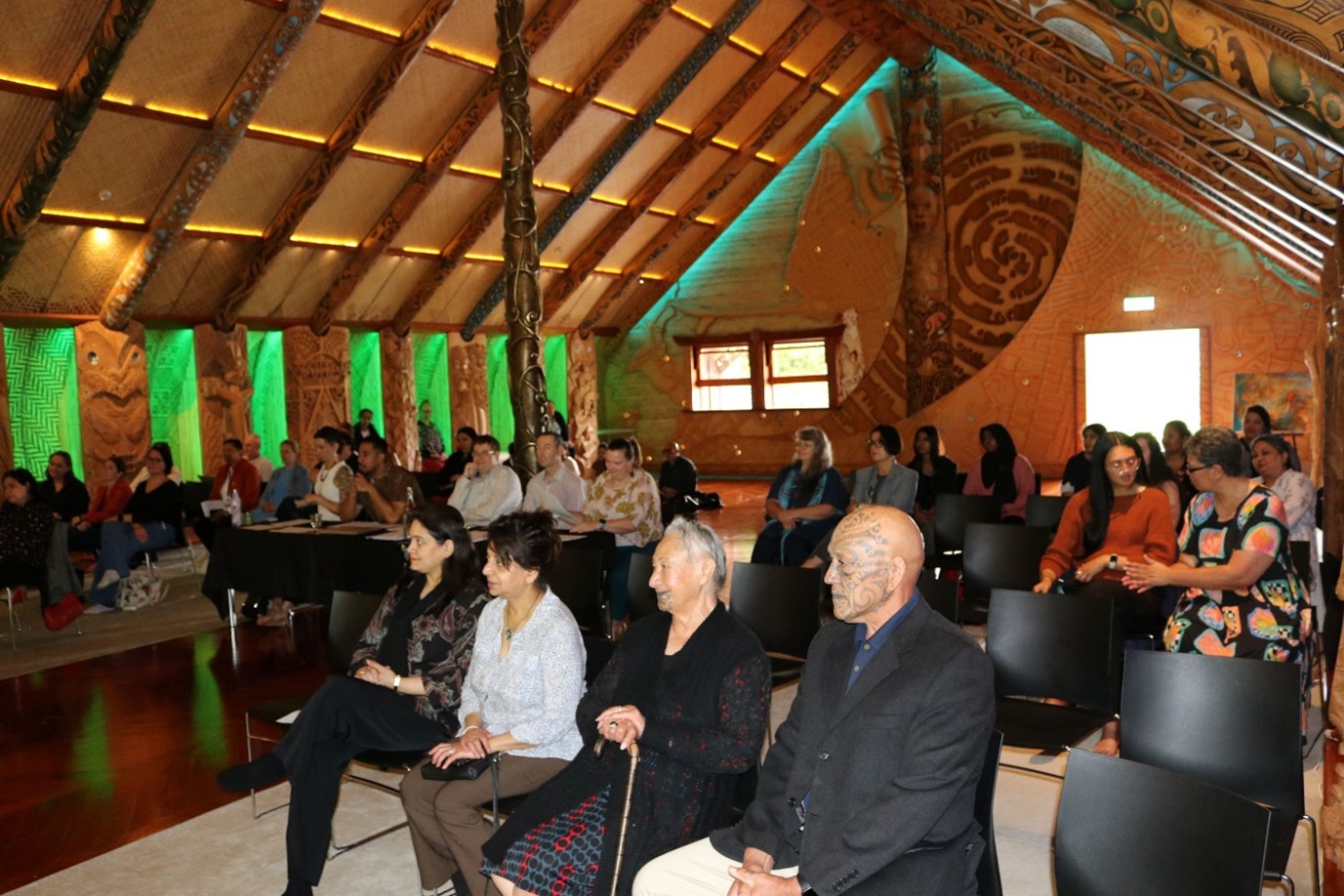
The audience included a five-person panel of judges from MIT and Unitec
Maria Gomes, Master of Applied Technologies (Computing) ākonga won the Doctoral or Master Student category for her entry entitled: ECG-Based Arrhythmia Classification with Input-Adaptive GraphSAGE.
Ms Gomes is developing a deep-AI model that will use data from an ECG (Electrocardiogram) to help health professionals diagnose arrhythmia. Arrhythmia is a condition where the heartbeat rate or rhythm has been affected.
The objective of her predictive model would result in only one ECG being required to diagnose an arrhythmia rather than multiple ECGs.
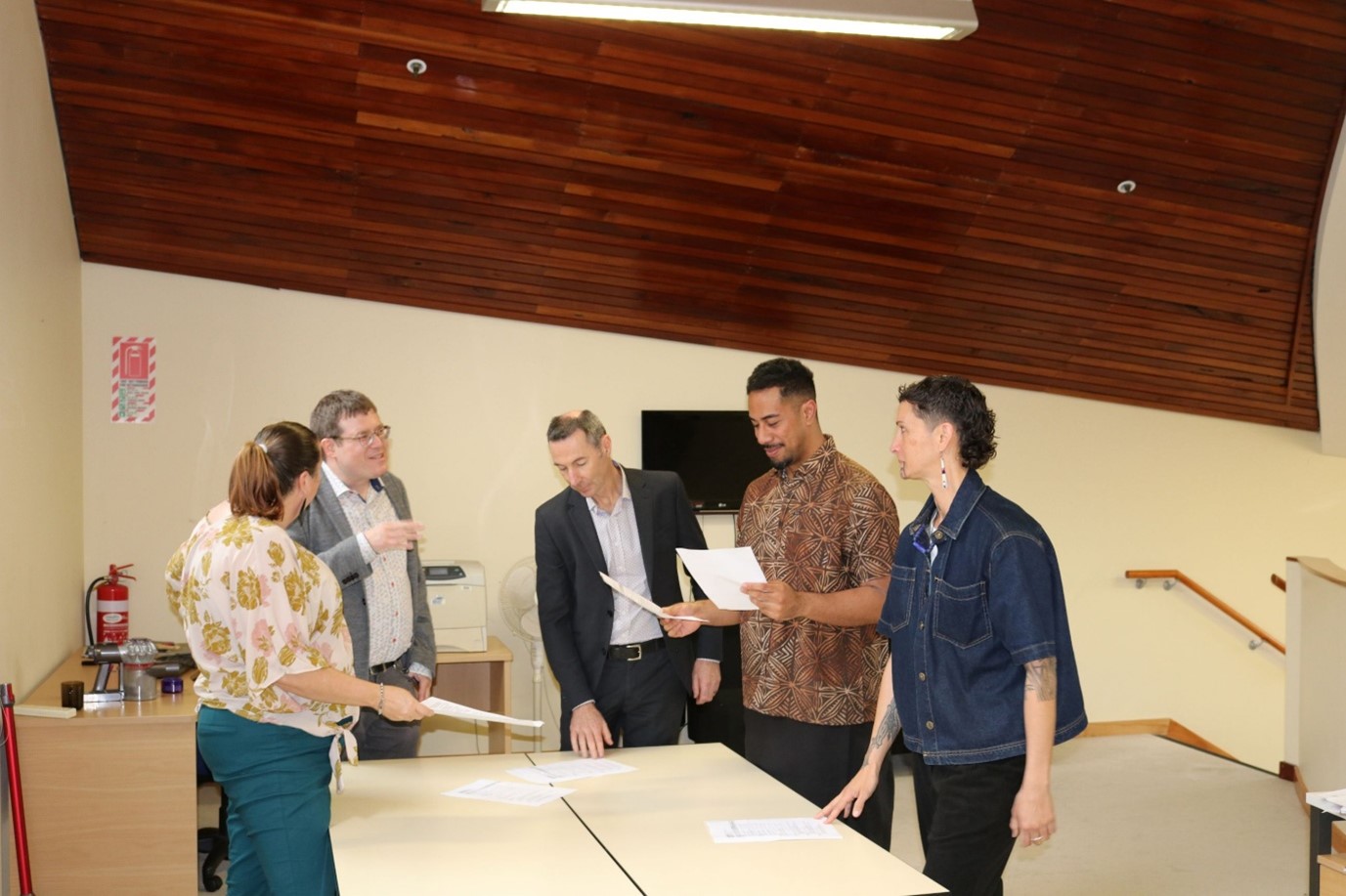
The panel of judges deliberating (from the left) Laura Harvey (Unitec), Gregor Steinhorn (Tūāpapa Rangahau), Robert Shaw (MIT), Associate Professor Dion Enari (Unitec) and Associate Professor Deb Heke (Unitec)
Unitec’s Research Partner, Gregor Steinhorn was on the judging panel and says it was very hard for the panel to choose the best of them.
“Maureen Fepuleai explained her topic in a way that was very accessible. That’s what impressed us as judges.”
“We liked Maria Gomes because the complex artificial intelligence research was explained in such a way that people can just easily get it instead of going into complex maths,” he says.
Associate Professor, Dion Enari, from Unitec’s Ngā Wai a Te Tūī was another of the judges.
He won a three-minute thesis competition at Bond University in 2018 and says it was a pinnacle opportunity to share his research beyond those in his faculty.
“From there I was able to build my platform and get external funding because they loved my three-minute thesis speech. That’s why I’m such a big believer in the platform. It’s great for our staff and students because you never know who’s watching,” he says.
“They were amazing. What was exciting was seeing how a lot of the research we have seen today will directly make the world a better place; will directly make Auckland a better place. It was very future-focused. It was great to see the real-life impact that a lot of this research will have.”
The competition was organised by Dr Rosanne Ellis, MIT & Unitec, Director Research and Enterprise and her team – Tūāpapa Rangahau.
Dr Ellis says it felt like everyone was onboard the Waka Hourua — connecting through research.
“I was incredibly proud of our kaimahi and ākonga who participated. The entire event was uplifting and inspirational. We were especially appreciative of our MIT kaimahi, who juggled teaching obligations and traffic to attend — your commitment did not go unnoticed.”
“It was fantastic to see the diversity of applied research and research-in-practice being showcased — from Kaupapa Māori, Pacific, health and wellbeing, to business, architecture, creative industries, and deep-tech like AI and computer science.”
“The competition truly highlighted the strength of MIT and Unitec’s vocational education research ecosystem. I want to acknowledge the Unitec Marae Team including Kaihaūtu, Harawira Pearless and the fantastic panel of judges for their time and expertise. They were Laura Harvey (Unitec), Gregor Steinhorn (Tūāpapa Rangahau), Robert Shaw (MIT), Associate Professor Dion Enari (Unitec) and Associate Professor Deb Heke (Unitec
The first prize winners won $1000 and runners-up $500. The Three Minute to Impact Competition will be an annual event.
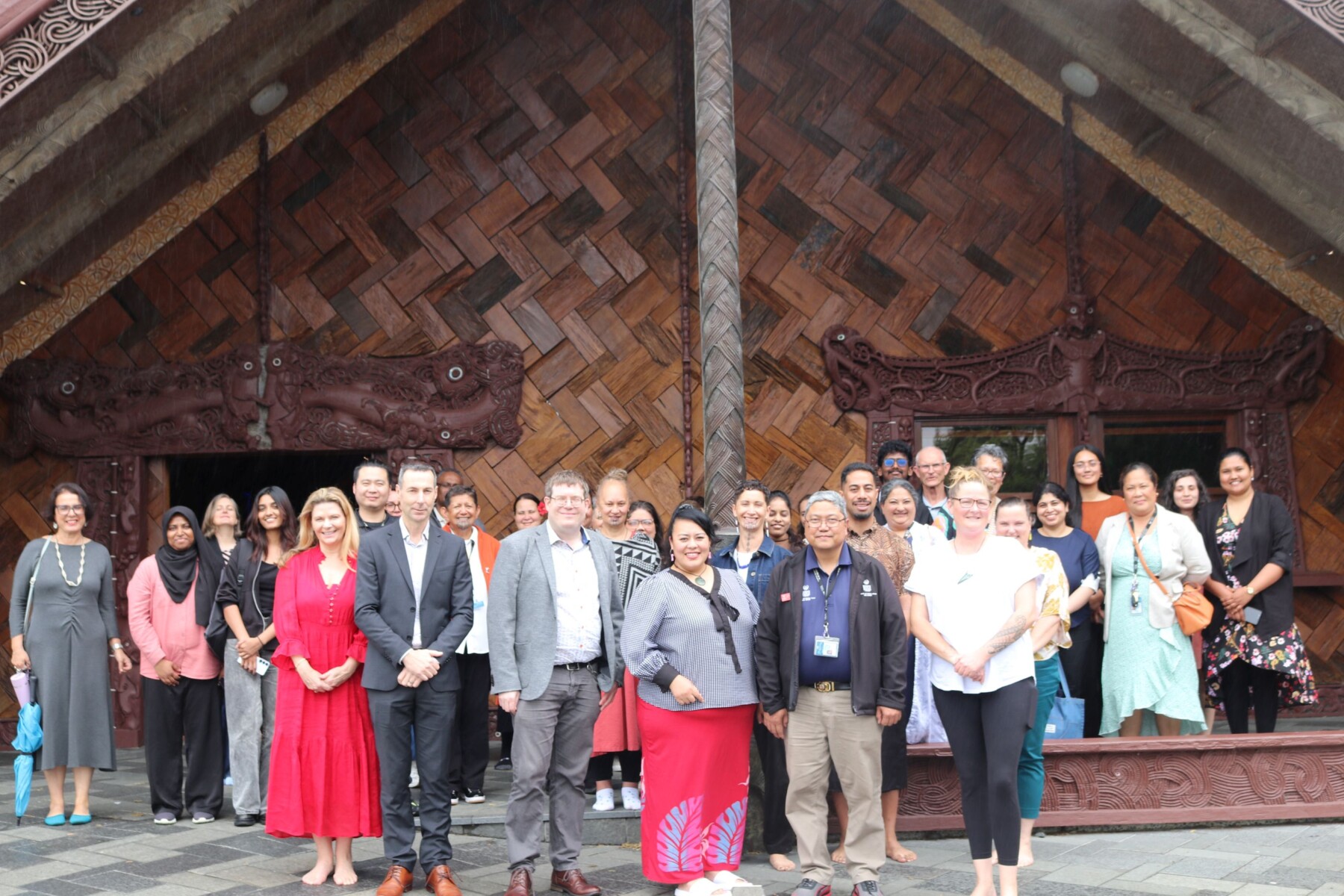
Unitec’s Te Noho Kotahitanga Marae was the venue for this year’s competition
The winners and runners-up
Emerging and Early Career Researchers
Winner
Maureen Fepuleai Navigating Ala: Empowering Tama’ita’i Samoa through Shared Stories.
Runners-up
Genevieve Sang-Yum Intersections of faith and abuse. A study of Samoan social work practitioners’ insights into family violence.
Kristie Cameron Community of researchers and Future-focused training.
Doctoral and Master Students
Winner
Maria Gomez (Unitec) ECG-Based Arrhythmia Classification with Input-Adaptive GraphSAGE.
Runners-up
Tracey Deane (Unitec) Liminal Illumination
Hunter Henson (Unitec) Whenua ki te whenua






